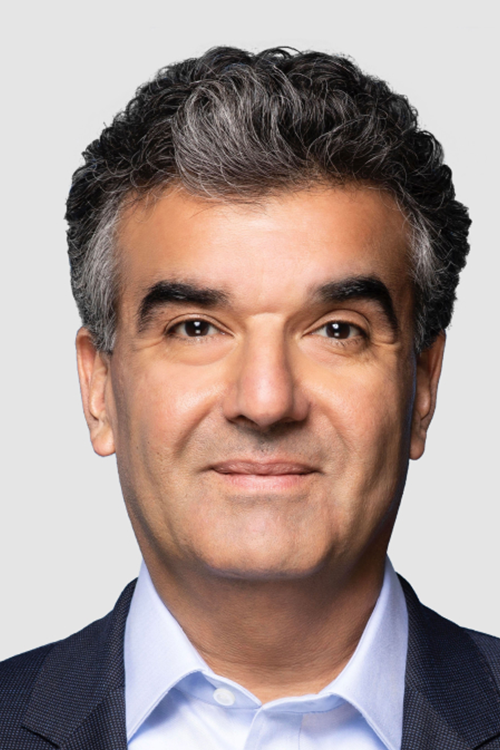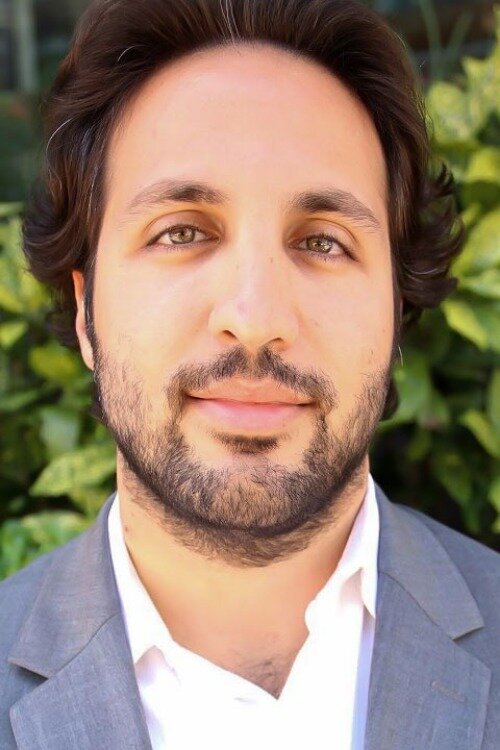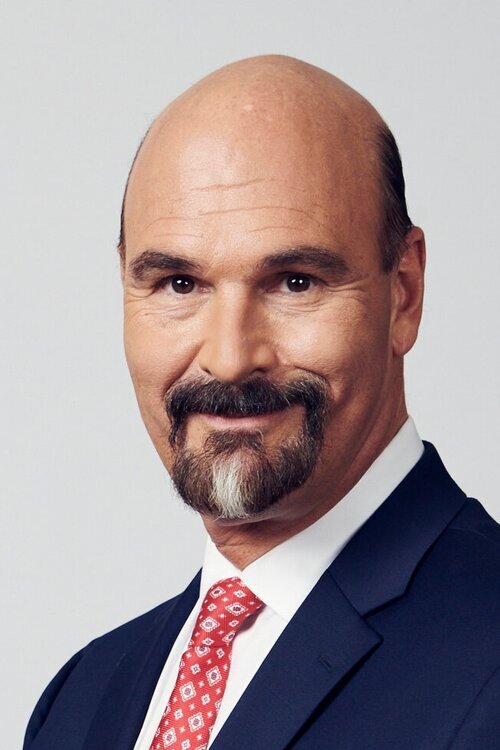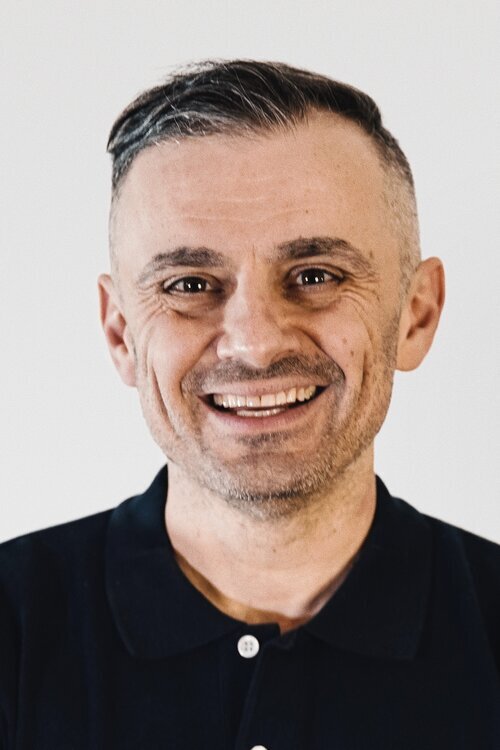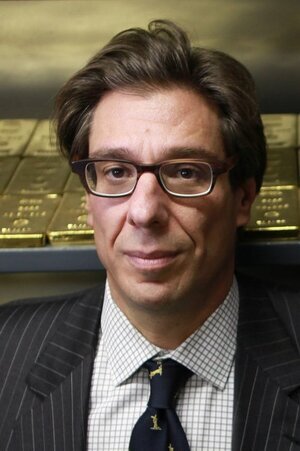“In order for all of the various DeFi applications to exist and really scale, you need a layer one blockchain.”
Brett Harrison, FTX US president, describes FTX’s founding by Sam Bankman-Fried and how the international exchange differs from its US counterpart. Harrison discusses FTX US’ recent LedgerX acquisition, the company’s broader vision and its recent marketing push. He explains the need for layer one blockchains in powering DeFi and how NFTs are serving as a crypto gateway for many. He lays out the case for centralized and decentralized finance’s coexistence and the potential of Serum, FTX’s latest decentralized project powered by Solana.
Prior to joining FTX US, Brett was Head of Semi-Systematic Technology at Citadel Securities, where he managed technology for the firm’s Options, ETF, OTC, and ADR trading globally. He began and spent the majority of his career at Jane Street, where he led the firm’s algorithmic trading system development. He also previously worked at Headlands Technologies as a senior software developer. Brett received his M.S. and B.A. in Computer Science from Harvard.
MODERATOR
SPEAKER
Brett Harrison
President
FTX US
Anthony Scaramucci
Founder & Managing Partner
SkyBridge
TIMESTAMPS
0:00 – Intro and background
5:55 – Explaining FTX and FTX US
10:06 – Acquiring LedgerX
12:19 – The FTX vision
16:08 – FTX US marketing and naming rights
18:58 – Solana, Project Serum and DeFi
23:28 – NFTs
25:29 – Potential additional acquisitions
28:56 – Comparing traditional finance and crypto
31:35 – Centralized and decentralized finance coexisting
35:04 – NFTs and play-to-earn gaming
38:12 – Responding to crypto critics
43:06 – Pyth network
EPISODE TRANSCRIPT
John Darsie: (00:12)
Hello everyone. And welcome back to SALT Talks. My name is John Darsie. I'm the managing director of SALT, which is a global thought leadership forum and networking platform at the intersection of finance, technology and public policy.
John Darsie: (00:26)
SALT Talks are a digital interview series with leading investors, creators, and thinkers. And our goal on these talks is the same as our goal at our SALT conferences, which we're excited to resume here in September of 2021. Our guest today is going to be a speaker there. We're very excited to have him and his firm at the SALT New York event. It's shaping up to be a fantastic event, not just in crypto, but covering asset managers from hedge funds, venture capital, down through the entire alternative investment spectrum. So looking forward to a fantastic event there.
John Darsie: (00:57)
But our goal there, and our goal here on these talks is to provide a window into the mind of subject matter experts, as well as provide a platform for what we think are big ideas that are shaping the future.
John Darsie: (01:09)
And our guest today is the president of FTX US. FTX is a company that we think is one of the most important companies, if not the most important company today in the crypto ecosystem. His name is Brett Harrison. Again, he's the president of FTX US, which is a US regulated cryptocurrency exchange.
John Darsie: (01:26)
Prior to joining FTX US, Brett was the head of semi-systematic technology at Citadel Securities in Chicago, where he still lives and where he managed technology for the firm's options, ETF, over the counter and ADR trading globally. He began and spent the majority of his career at Jane Street, which is where he met Sam Bankman-Fried, the founder of FTX. Where he led the firm's algorithmic trading system development.
John Darsie: (01:50)
He also previously worked at Headlands Technologies as senior software developer. Brett received his master's and his bachelor's degree in computer science from Harvard. Our host today Anthony Scaramucci also spent some time at Harvard, but over at the law school. Anthony also took three attempts to pass the bar exam. So I'm going to go ahead and say that Brett's academic accomplishments maybe supersede Anthony's a little bit, but Anthony is the founder and managing partner of SkyBridge, which is a global [crosstalk 00:02:16] alternative investment firm.
Anthony Scaramucci: (02:17)
[crosstalk 00:02:17].
John Darsie: (02:17)
He's also the chairman of SALT. Go ahead, Anthony. Get your shots in on me.
Anthony Scaramucci: (02:23)
[crosstalk 00:02:23] mention the fact I got fired from The White House before we get the thing started or what?
John Darsie: (02:25)
[crosstalk 00:02:25].
Anthony Scaramucci: (02:26)
The problem is if I divided my age by four, it like adds up to your ages. Okay? I mean your respective ages. So I'm with two young bucks here. So I'm on my own, okay? I don't have any baby boomers here to protect me. Keep going Darsie. What else you got to say? Go ahead.
John Darsie: (02:42)
I'm done. I've said all the disparaging things I'm going to say, but we're excited to have Brett on here. At SkyBridge, Anthony obviously, as you might know Brett, we were one of the first '40 Act funds to invest in funds with allocations to cryptocurrencies, and obviously very enthusiastic about the space. And excited to have you guys at the conference. Anthony, you take it away. I'll pipe in with some questions later on.
Anthony Scaramucci: (03:04)
Well, Harrison, that will not be the most disparaging thing that he says. Okay? You have to understand there's a little bit of a rivalry here because John Darsie gets fan mail, okay? I'm just letting you know Brett, that irks me. So let's go right into it. You got to tell us a little bit more about your background. Where did you grow up? Where did you go to school? And did you think you'd be doing what you're doing today when you left high school Brett, that's what I want to know.
Brett Harrison: (03:31)
Sure. So I was born in New York city. I grew up in Long Island, New York.
Anthony Scaramucci: (03:37)
What town on Long Island?
Brett Harrison: (03:39)
Dix Hills.
Anthony Scaramucci: (03:40)
Okay. [crosstalk 00:03:41].
Brett Harrison: (03:40)
So near Huntington, Commack. Right in the middle.
Anthony Scaramucci: (03:42)
Yeah. All right. I'm from Port Washington. He's like a [crosstalk 00:03:46] at the Sands Point. He lives on a baronial estate, okay?
Brett Harrison: (03:50)
Fancy.
Anthony Scaramucci: (03:50)
He's incredible [crosstalk 00:03:51].
Brett Harrison: (03:51)
Very fancy.
Anthony Scaramucci: (03:51)
That's why he's wearing the Zuckerberg sweatshirt. [crosstalk 00:03:55] So you grew up in Dix Hills. Where'd you go to college?
Brett Harrison: (03:58)
I went to Harvard. Got my bachelor's and master's degree when I was at Harvard and then moved back to New York city to start my career at Jane Street. When I was in school, studying comp sci, I had no idea what I want to do with that. At the time, it wasn't obvious that with a computer science degree, you could just do anything.
Brett Harrison: (04:20)
Every single company needs computer programmers of some kind. I thought maybe I would be a teacher or just work for a company that I knew the name of like Google or Microsoft. But then I had a number of friends in my math and computer science courses who were getting all these internships at trading firms. And a couple of them had worked at Jane Street and they said, "Yeah, you really should try applying and check it out. It's a great place for math and CS and physics majors."
Brett Harrison: (04:46)
And I didn't know anything about finance, but sure, let's give it a shot. And then I interned there and I ended up at Jane Street and spent the majority of my career there. And that's sort of how I got my start into finance. But as for crypto, I really was not involved in crypto at all prior to FTX. Except for a short stint with crypto, with Jane street, when they were starting to get into the trading space towards the end of 2017. And mostly just spent my time building systems and managing teams for sort of the regulated financial instrument markets like equities, equity options, commodity derivatives, things like that.
Anthony Scaramucci: (05:31)
So FTX, perhaps the fastest growing crypto currency company in the world. For those people that are less familiar, tell our audience about the various lines of business, but also FTX US and how that all fits in together. And of course, you're the president of FTX US.
Brett Harrison: (05:54)
Yes. So FTX, the international exchange was started around two years ago as really an answer to the existing derivatives exchanges that existed. Where a bunch of bad stuff was happening. Customers were getting liquidated left, and right. There was no cross margining. So you couldn't use your Ethereum to collateralize your Bitcoin futures position.
Brett Harrison: (06:20)
It was a real pain to be able to operate any of these platforms. The interfaces were clunky, the risk systems weren't built by people who really understood trading. And so Sam Bankman-Fried founded FTX two years ago with no clear idea that this would be something that would be this huge. He thought, "Look, we know we could do a better job, but let's just give it a shot."
Brett Harrison: (06:43)
And organically, the growth has just been exponential over time. And FTX grew to somewhere between the fourth and second largest exchange in the world for trading crypto and crypto derivatives. Fast-forward to about a year and change ago when the company decided to make a US offering. Now in the US because of the existing regulatory and licensing regimes, there's a limit to what you can do without getting some certain kinds of licenses.
Brett Harrison: (07:13)
So in this case, the FTX US was started. It's a completely separate company that's run entirely within the US and it is currently a spot cryptocurrency exchange. So we offer 20 some odd pairs of spot crypto token pairs that you can trade. We also have some spot margin program. We have an NFT marketplace. We have a payments system whereby merchants can use FTX US to accept crypto as payments. And we're doing around $150 million of volume a day on the US platform. Up from around like a million dollars a day back in January. So we're growing super fast as well, but still climbing up the ladder to compete with some of the biggest competitors in the US space.
Anthony Scaramucci: (08:04)
From a regulatory standpoint, how does FTX US operate differently from FTX International?
Brett Harrison: (08:12)
So FTX US is a FinCEN regulated money services business. So we operate under that regime and we report to FinCEN to be able to operate a business, which all it really does at the end of the day is transfer money between different persons. So one person from Washington wants to buy crypto from eventually... So let's say someone in Mississippi, because those are the two orders that match up in the order book.
Brett Harrison: (08:43)
We're licensed to be able to transfer either virtual currency or fiat currency between those two parties. And so that's how we are regulated within the US. It also means that there's a lot of things that we can't do. So for example, there are certain spot tokens that might clearly be securities under the SEC definition. And because we're not a securities exchange, and they're not registered securities, you can't offer unregistered securities to unaccredited investors.
Brett Harrison: (09:14)
So we can't list certain things on the platform in the US because of those restrictions. So that's a big way in which sort of we operate differently from ftx.com. Whereas ftx.com have a wider array of spot tokens on the platform. They offer futures quarterly as perpetual futures, other kinds of prediction market contracts that we can't offer in the US yet.
Anthony Scaramucci: (09:38)
But you're getting there and you just...
Brett Harrison: (09:40)
We're getting there.
Anthony Scaramucci: (09:41)
Yeah, you're getting there. You just did a major transaction. Congratulations on that.
Brett Harrison: (09:45)
Thank you.
Anthony Scaramucci: (09:47)
I have to disclose that I was an early investor in LedgerX.
Brett Harrison: (09:50)
Sure.
Anthony Scaramucci: (09:50)
So I'm disclosing that now. And I know the company quite well. Tell us a little bit about LedgerX. Why you decided to buy LedgerX? And the regulatory landscape related to the CFTC. And congratulations on the deal by the way.
Brett Harrison: (10:05)
Yeah, thanks so much. No, it's really exciting. Maybe working backwards a little bit. So in the US if you want to be able to operate an exchange that allows people to trade things like futures and options, you have to have a license from the CFTC called the DCM license or a designated contract market license.
Brett Harrison: (10:26)
Alternatively, you can also have a SEF license, or swap execution facility, which allows you to operate a swaps trading platform. Which you can only operate between ECPs. Exchange contract participants, which are basically clients that have a certain net assets. Above 10 million in assets and a few other definitions. And there's one more important part of this, which is in order to actually clear derivative contracts, you have to do it at a DCO or a derivatives clearing organization, a clearing house.
Brett Harrison: (10:59)
And there are very few DCMs and DCOs in the United States. In fact, on the DCO side, there is only really about five. And LedgerX has all three of the above licenses. They're a DCM, a DCO, and a SEF. And they have quite an expansive scope of their [inaudible 00:11:19] license to be able to clear futures, options, options on futures, swaps.
Brett Harrison: (11:24)
And so for FTX, which has this two-year history of running a huge successful derivatives platform, and we want to bring this to the US in a regulated fashion by using the existing regime from the CFTC, it's a very attractive target for us to be able to work with them, and in conjunction with their licenses be able to have a path to offering derivatives to US retail and institutional customers.
Anthony Scaramucci: (11:50)
Okay. So it's exciting. The transaction's been announced. You're closing subject to regulatory approval, keeping my fingers crossed there. You have ambitions beyond crypto coins, including things like tokenised securities, equity derivative products that you're discussing, innovative commodity derivative products. Tell us about the future. Give us a sense for the wide ranging vision that you guys have for the firm.
Brett Harrison: (12:18)
Sure. So I think one thing that makes FTX special as a technology platform is that it wasn't built just for crypto. It's a quite generic platform for doing things like matching up buyers and sellers of any asset that you can attach a price to, of being able to be custodians of customer funds, of providing an app or a website where people can go and manage their experience. Whether they're a new person to crypto or they're an experienced professional investor or an institution.
Brett Harrison: (12:53)
And so because of that, we could really be an exchange for everything. We don't have to adjust be for crypto. And for example, using the LedgerX licenses, there's no reason why after offering, let's say Bitcoin options or Ethereum futures, we couldn't eventually offer, an S&P 500 future on our platform. Right now you can't open up a phone and trade a CME future without going through, let's say some other kind of broker, and there's a lot of expensive fees involved in that.
Brett Harrison: (13:27)
And you might not be able to see the order book because market data fees are expensive on those platforms too. We could completely turn that on its head. And so I think that there's a huge potential for us to get into these different markets. And then beyond derivatives, I think in terms of having an investment platform that really attracts a wide array of retail customers. What's next? There's crypto, there's derivatives. Well, I think a natural extension off that is playing US stocks and options, which are hugely popular for investors in the US and again, no reason why that can't be something else on our future roadmap.
Anthony Scaramucci: (14:06)
I mean, so very, very big ambitions. You're going to come up against some competition with some of the existing exchanges. So tell us how you're going to manage that.
Brett Harrison: (14:18)
Yeah, it's a tough climb because we're so new. FTX US has been around for a year. If you think about some of our biggest competitors in the crypto space, just the spot crypto markets, for example. Some of these companies have been around 8, 9, 10 years. They've become household names for trading crypto, and we need to do the same.
Brett Harrison: (14:38)
We need to be the name that everyone mentions first when they think about crypto. And so that's why we've also been making this huge marketing, branding sponsorship push in the US. Where we're partnering with Major League Baseball, or we named the Miami Heat arena, the FTX Arena. And it's to make a big splash in the US and get people to think of us as their household name for what they think to first, when they want to go download an app to trade crypto or anything else. And so the combination of having the superior technology, having a great user experience, having relatively lower fees, and also having this wide brand appeal, I think is going to help us eventually dominate in the US.
Anthony Scaramucci: (15:21)
Okay. So I mean, this is editorializing by me. So forgive me. I think the move to name the arena was absolutely brilliant. But I think the move to put the name on the umpires was absolutely more brilliant than the brilliance of naming the theater. I'm not flattering you. I just think it's absolutely brilliant because it creates this instant imprimatur. And you've raised yourself up to the level of the "major leagues". Literally Major League Baseball. So who came up with the idea? How did you decide to do it? It is a bold and sweeping idea, which I greatly admire. Give us some thought behind that. Help me with that.
Brett Harrison: (16:06)
You know, Sam, as you've seen from the dizzying growth, all of the acquisitions, all of these partnerships, he thinks up here. When I think everyone thinks like, "What's the next incremental step?" He's like, "How can I leapfrog everything?" So I think the story went down something like this. I'm not going to personally take credit for the arena naming. That was before my time joining the company.
Brett Harrison: (16:33)
The story went something like this. Sam basically went to the employees of the company and said, "What's the biggest thing we can do? Go out and figure it out. Everyone just go figure out what's the biggest, coolest deal that we can do to really get our name out there. I don't want to just buy Google Ads or Facebook Ads or do like one TV commercial. I want to figure out something that's really going to stick and have immediate widespread appeal."
Brett Harrison: (16:58)
And then someone came back and I think it was... Avi had some experience with the MBA and said, "We might be able to name a stadium." And Sam said, "Go do it." And then he did it. And that's sort of how it happened. The same thing, like what's a established brand in the US that everyone knows, and everyone loves and everyone trusts. How about a professional sports league? And then the conversations went on from there. And I'll tell you, I think the umpire patch worked out better than our wildest dreams, because it was hard to really visualize it until it actually happened.
Brett Harrison: (17:36)
But every YouTube clip of a break, either a strikeout or a home run starts with looking at the player in front of the umpire with the patch. And so we're getting pictures and videos from fans of FTX all over the world who are showing, "Hey, saw FTX at the game tonight." And so it just has worked out so well for getting our name out there.
Anthony Scaramucci: (17:59)
Well, I think it accomplished all of those things and more because you get the goodwill, you've burnished some goodwill from both of those places, which have more or less universality of goodwill. So I applaud you guys for that. We did a recent SALT talk with Anatoly Yakovenko.
Brett Harrison: (18:23)
Yeah.
Anthony Scaramucci: (18:24)
Okay. And so now... Look at me, because I'm scratching my nose. You know why I'm doing that? Because I pronounced his name right, and Darsie did not think I was going to pronounce the guy's name right. But I actually did, okay? He's the founder of Solana, as we both know. Okay? And we talked a little bit about Sam and FTX and simultaneously disrupting a centralized exchange model by building something called Serum. So tell us what Serum is and tell us why you guys are using Solana.
Brett Harrison: (18:56)
So DeFi is definitely... Has already taken a huge stake of the interest of the crypto world, but will take an even larger interest going forward. And in order for all of the various DeFi applications to exist and really scale, you need a layer-1 blockchain where you can achieve the number of transactions per second on that blockchain, that a real-world scalable app might achieve.
Brett Harrison: (19:24)
So if you think about, if you wanted to build Twitter on a blockchain, how many tweets and likes and replies and DMs are being sent per second. And can a blockchain keep up with that? If you have an order book where you have every order and cancel and trade message happening on the blockchain, can a blockchain keep up with that? And right now, for things like Ethereum and Bitcoin, those can support tens, maybe hundreds of transactions per second.
Brett Harrison: (19:54)
That's not going to scale if you have thousands or tens of thousands of apps with potentially hundreds of millions of users on those apps. And Solana was one of the few chains that FTX really saw that has that capability now, and can have that potential to scale in the future. And so it just made sense that look, if we're going to help the Serum company build this decentralized exchange, well, it's got to be on something that we know is going to work from the beginning.
Brett Harrison: (20:27)
If we put it on something, that's not something like Solana, it's going to be doomed from the start. And so that's how we ended up partnering so much with Solana and there's such exciting things happening there.
Anthony Scaramucci: (20:39)
Is there opportunities to use other coins and create new Serums or are you locked into Solano and Serum or because of your exchange ambidexterity and the diversity of what you're doing, will you do other things like Serum for other coins?
Brett Harrison: (21:00)
So what's really cool about the Solana ecosystem, and I guess in general about DeFi is that all of these apps that are all in the Solana blockchain are composable. So for example, there's another project on Solana called Raydium and Raydium is like a spot pool. And that Raydium is built on top of Serum, but Raydium has their own coin. You can stake that coin to receive yields, but it basically builds on top of something that's an order book.
Brett Harrison: (21:30)
And the order book itself is built on this layer-1 blockchain. And so what you see in the Solana ecosystem is this explosion of different apps that are being created because each one can take whatever the other ones had built, and use those as one components. And then they can have their own project, their own coin, their own ecosystem, their own user interface. And so what's really cool about this is you're not locked into some monolithic system that you have to use all of it or none of it. You can [inaudible 00:21:57] pick and choose which aspects of the systems on the blockchain that you want to use for your app.
Anthony Scaramucci: (22:03)
Okay. So it sounds like it's Solana centric then because you like the versatility of Solana. Is that fair to say?
Brett Harrison: (22:11)
I think that [crosstalk 00:22:12] when we were thinking about DeFi, when we want to partner with someone in the DeFi space, we're pretty much... We're choosing Solana because of it's capabilities right now.
Anthony Scaramucci: (22:22)
Okay. But you're open-minded to others or [crosstalk 00:22:25].
Brett Harrison: (22:25)
Yeah, absolutely.
Anthony Scaramucci: (22:26)
[crosstalk 00:22:26] I heard a quote from him saying that we're at war, meaning there's a war for real estate in the digital space. And there's going to be a few winners and lots of losers. So you're open to others, or are you sort of-
Brett Harrison: (22:38)
I think there's definitely a room for a couple. I don't think there's room for 50. And what you see is some of these blockchains that they're kind of either copies of another one and they're not really adding much new to the space, or they're not as well designed as something like Solana. And so I think, you're going to see a couple over time that are going to stick around.
Anthony Scaramucci: (22:56)
All right. Sounds good. I have a couple more questions. I know Mr. Darsie is dying to ask you questions. It's [crosstalk 00:23:03].
John Darsie: (23:03)
Chomping at the bit.
Anthony Scaramucci: (23:04)
He's going to try to upstage me with his non baby boomer intellect. All of this millennial stuff. He thinks he's cutting edge with his hoodie, but let's go to the NFT and gaming area.
Brett Harrison: (23:16)
Yeah.
Anthony Scaramucci: (23:18)
Tell us what you're doing there. I know you've got some things powered by Serum there, also decentralized. What's the future look like there?
Brett Harrison: (23:27)
So the NFT space is really hot right now. And first of all, just in general, people are coming into this space, looking for a way to participate in the crypto ecosystem, but in a way that's familiar and friendly. And I think that user-friendliness of NFTs is really helping draw people into this.
Brett Harrison: (23:47)
It's something that a lot of people can vibe with, "Okay. It's a collectible. It's something that is a really cool piece of art and it's limited. And I would like to own it." That's sort of an experience that is very familiar to people. And so I think more and more people are coming into DeFi by way of NFTs. Now, specifically Solana NFTs have really started to come on the scene in the last couple of weeks even. And we're seeing such interest. A pack of 10,000 single, first edition NFTs selling out in 30 seconds. And so what we at FTX are looking to do is-
Anthony Scaramucci: (24:28)
Should I buy a Degenerate Ape?
Brett Harrison: (24:30)
Well, buying it a couple of weeks ago would have been a very good trade. You would have made a 1000% on it. Right now, I think the floor on a Degen Ape is a 100 SOL. So around $10,000 or so.
John Darsie: (24:46)
Yeah, it's getting more expensive every second Brett by the way.
Brett Harrison: (24:49)
Every second. If you keep refreshing, it gets even more expensive. But we would love to be the secondary marketplace for NFTs like Degen Apes. And so we're doing some hard work in the background as we speak to help build out our NFT platform to be a great place for not just Solana, but also Ethereum based NFTs for people to resell.
Anthony Scaramucci: (25:14)
Listen, I think what you guys are doing is amazing and fascinating. What are the next projects or types of acquisitions you have in your sights for FTX US?
Brett Harrison: (25:28)
Yeah. It's hard to say for sure. Since the raise, we certainly get a lot of opportunities for potential acquisitions. There's a lot that comes across our desk and we're looking for a couple of different categories of things that we might want to look at for a potential acquisition. So one is ways of achieving user acquisition for our retail platform faster.
Brett Harrison: (25:54)
So for example Blockfolio, which was the first major FTX acquisition about a year ago. Was one of those plays. They have six, seven million users.
Anthony Scaramucci: (26:03)
Yeah, not to interrupt you, but just because we have a lot of young [inaudible 00:26:05], what is Blockfolio in your words?
Brett Harrison: (26:07)
Sure.
Anthony Scaramucci: (26:08)
Just so that we can...
Brett Harrison: (26:08)
So Blockfolio was primarily an app for tracking crypto trades and your crypto portfolio. It was one of the first of its kind and one of the best. And when FTX acquired Blockfolio, we added trading to that app that was powered by FTX and FTX US. So the play there was for all these people who are constantly checking their app all the time, looking at the prices, let's give them a way of buying Bitcoin, of selling ETH. But let's do it in a way that is extremely user-friendly. That's really meant for that person who downloaded the app for the first time.
Brett Harrison: (26:43)
They don't even know what a Bitcoin is. Let's help them. Let's guide them through the process. So I think we're on the hunt for similar kinds of acquisitions that can help get users onto FTX US. And then I think licenses, and the sort of regulatory side of things is another part of our acquisition target. So LedgerX was an obvious one in hindsight now, great way for us to maybe get into derivatives in the US faster than if we were to apply for those licenses from scratch.
Brett Harrison: (27:13)
And there may be other such companies that allow us to do new business lines that this target company has been able to get those licenses that we would need.
Anthony Scaramucci: (27:25)
All right. Well, I'm going to turn it over to John Darsie. I think what you guys have done is extraordinary. I applaud your marketing prowess.
Brett Harrison: (27:34)
Thank you.
Anthony Scaramucci: (27:35)
I would like to get my house named after FTX. So I'm going to be talking to you guys about it later in the program.
Brett Harrison: (27:41)
FTX Scaramucci house.
Anthony Scaramucci: (27:42)
Yeah. Forget Scaramucci. That name, forget about it. We're just going to go with the FTX, okay? And we'll be talking about that naming ceremony later, but in the meantime, I'm going to turn it over to John Darsie.
Brett Harrison: (27:53)
Sure.
Anthony Scaramucci: (27:54)
And congratulations on everything you've done, Brett. I'm very impressed.
Brett Harrison: (27:57)
Thank you.
John Darsie: (27:58)
Yeah, Brett, again, we're super excited about LedgerX's merger with FTX. We think it's a match made in heaven. When you guys started talking, it was just again, a great fit that I think will supercharge the growth that you guys organically have already achieved. So congratulations on that. But I want to talk about your background for a second.
John Darsie: (28:17)
You've talked about how you have a computer science background, both your bachelor's and your master's at Harvard. You went into the finance world. You were at Jane Street, you were at Citadel. So you sort of sit on both sides of the equation, where a lot of things going on in crypto today are being driven by engineering or computer science types, with less understanding of the financial world, less understanding of the regulatory environment. How do you think that sort of dichotomy of your experience where you've lived the computer science education and experience, but also had industry experience. How do you think that's helped you be an effective leader for FTX US?
Brett Harrison: (28:55)
Sure. So it's interesting seeing the differences in the crypto space and the traditional finance space. I'd spent 12 years of my life inside of these highly successful, but really secretive firms. Where they're very hyper competitive. Always looking to sort of outsmart their cohorts. And compare that to crypto, where in the crypto world, everyone is talking about what they're doing.
Brett Harrison: (29:26)
There's a lot of advertising. People are on Twitter chatting with each other directly about problems they're having with the platform. And people are investing in each other's companies, even Coinbase is an investor in FTX, even though they're our competitors. The kind of cooperation and openness is very, very different. And I think a lot of that has to do with people with no bias of how the traditional finance system has worked for all these decades.
Brett Harrison: (29:54)
Engineers who are used to more open source cultures coming in, creating companies as if they're just tech companies, even though they're so deeply rooted within finance. And I think that for me, getting to sort of be a software engineer in crypto, but also knowing what kinds of things have made traditional finance successful. How do you build a scalable system that allows for millions of users and billions of transactions, for example. There's a lot of hard burns, lessons from building those kinds of systems at a place like Jane Street that transfer over, I think pretty well to FTX and other exchanges like us.
John Darsie: (30:39)
Right. And one of the things we talked about with Anatoly when we had him on our SALT talk was, it's sort of what Anthony alluded to earlier is that you guys are building the fastest growing, if not... One of the fastest growing, if not the fastest growing exchange globally in the US. A centralized exchange where you're obviously abiding by all regulatory frameworks that are in place, the LedgerX acquisition was another way for you guys to obtain licenses, allow you to operate in a highly regulated environment.
John Darsie: (31:05)
But at the same time, you're investing in Serum, a decentralized exchange that has maybe greater ambitions for the future, and also is disrupting the same businesses that you guys are building from a centralized perspective. So how do you balance sort of that short-term perspective of, "Okay, we have to live inside of the box that we have to in the United States and other regulated environments." But also sort of taking that ambitious moonshot at the future of re-imagining the financial system and the regulatory framework.
Brett Harrison: (31:35)
So I think that centralized finance and decentralized finance will co-exist and continue to coexist even in the long run. And I think there's sort of two arguments behind that. There's sort of like a physics argument, and then there's a regulatory argument.
Brett Harrison: (31:51)
So the physics argument is something like, traditional finance firms, which many of which are institutions that trade on FTX US are looking for low latency, high throughput, high transactions per second. And in the DeFi world, in order to validate a transaction, it basically needs to hit all of these different validators that could be anywhere in the world.
Brett Harrison: (32:14)
So that sort of puts a theoretical lower bound on how fast a single transaction can occur. It's basically the time it takes light to go around the Earth once. So on the order of a hundredish milliseconds. But for something like the NASDAQ exchange, you can have a single transaction occur in single digit microseconds, sometimes hundreds of nanoseconds.
Brett Harrison: (32:36)
So they are on complete different orders of magnitude. And I think there will always be a place for large liquidity providers to want to be on platforms that allow for this very low latency. The second is that even as DeFi continues to grow, I think we're going to find that the regulatory agencies are going to catch up to the growth of DeFi. And they're going to want to say, "Look, this is great. And it's an awesome innovation. We want to be able to support it, but only if we can make sure we know who's actually interacting with this. We're making sure there's no money laundering occurring on the platform. Make sure people aren't being scammed and their money stolen and everything else."
Brett Harrison: (33:16)
And I think that there's going to be a potential for CeFi and DeFi to work with each other where centralized exchanges like us could be the on-ramp into DeFi. We're the player that knows how to do AML KYC for millions of customers. We're a place where people can safely store their funds like a bank, but then we can help provide sort of a gateway into DeFi from that as a portal. So that's sort of how I see these two things coexisting over time, and I think they will help build each other up.
John Darsie: (33:47)
Yeah. And to your point, the SEC recently... Or there was a report in the Wall Street Journal about the SEC investigating Uniswap, which is the largest DeFi exchange, for how investors are using the platform, how the platform is marketed. Probably tackling some of the same questions that you just talked about. Sort of the way smart people in the industry that understand regulation have explained it to me is that they think regulators will continue to crack down aggressively on the real nefarious players in the space, because there's certainly unscrupulous players in crypto.
John Darsie: (34:18)
The same way there is in any industry. And they'll slap other people on the wrist just to make sure that people are staying within the boundaries that the SEC wants to create. Do you think that's an accurate depiction of it?
Brett Harrison: (34:29)
Yeah, I think that's right.
John Darsie: (34:33)
Anthony talked about the NFT space and gaming. I alluded earlier to Aurory, which is the Aurory Project, which is a game involving NFTs powered by Serum that Anthony was referencing. There's also Star Atlas, which we talked to Anatoly about, that you guys are supporting with your exchanges. Could you explain again for the people on these talks that are less familiar with what is an NFT powered sort of play to earn type game? What does that look like and why is that so transformative?
Brett Harrison: (35:02)
Sure. So if you think about a typical video game with some kind of in game economy. There might be something like gems or gold, and you need those gems or bold to be able to perform actions within that game. And sometimes you can trade those gyms or gold within the game, but then that never really leaves the virtual world or hasn't prior to the advent of blockchain technology.
Brett Harrison: (35:32)
So what NFTs and blockchain in general have allowed games to do is for these sort of in-game currencies to sort of escape the game and actually be something that people can trade and buy and sell peer-to-peer. So an example is, the most interesting current day example of this is Axie Infinity. Which is this huge growing forest where people are actually quitting their jobs in the Philippines to go play Axie Infinity, because they can earn more per hour playing Axie Infinity than their previous jobs.
Brett Harrison: (36:07)
And so with that they breed these little monsters called Axies, but the Axies themselves are NFTs. They're tokens, like virtual currencies, but they're only sort of one of a kind tokens. And they can use them and trade them peer to peer with other people, sell them for profit, buy them, try to train them up, sell them again for profit. And so NFT has allowed for games to sort of interact with the real world economy in this sort of safe, [inaudible 00:36:37] way that has never really existed before.
John Darsie: (36:41)
I feel like Pokemon is screaming out for a massive multiplayer NFT driven gaming system. I mean, that's something that I grew up watching. [crosstalk 00:36:49]
Brett Harrison: (36:49)
I think that would be huge. I feel like it's only a matter of time.
John Darsie: (36:52)
Yeah. I feel like it's tailor made for it. And as a father of four, I have a one month old. I don't have enough time to game maybe the way I did when I was younger, but these games seem fascinating. It seems like we're just scratching the surface of... You read books like Ready Player One. I talked to Anatoly about this, and it's like, you could see that becoming a reality where these things are so fascinating and you create digital economies.
John Darsie: (37:15)
Anatoly was talking about how, when he was younger, he played World of Warcraft and used to mail physical checks to people to buy their goods and services on their game.
Brett Harrison: (37:23)
[crosstalk 00:37:23].
John Darsie: (37:23)
And this is just the next iteration of that, obviously in a much more seamless manner and scalable manner. But FTX is very focused on climate sustainability, ESG if you will of crypto and also just philanthropy generally. I know Sam's passionate about that. It's a value set that he's pushed down through the organization.
John Darsie: (37:43)
Crypto critics, one of the accusations they like to go to is that Bitcoin is where it starts, about Bitcoin mining and lack of sustainability. And there's other criticisms of crypto that it doesn't really serve a purpose in society while also having a large carbon footprint. First of all, how do you analyze those criticisms? And also how does that ESG mindset that Sam has adopted pervade the way you operate your business and the way you guys think about the future?
Brett Harrison: (38:10)
Sure. So I'll break that down into a couple of different parts. So the first is...
John Darsie: (38:14)
[crosstalk 00:38:14] few questions you [crosstalk 00:38:15] unpack.
Brett Harrison: (38:15)
Yeah. So is the industry worth it, is sort of a hard philosophical question. I think if you believe in markets and you believe that the markets will speak for themselves, a multi-trillion dollar industry doesn't appear out of nowhere without some use. And I think we're seeing so many different use cases of the technology and so much promise for that technology that it's hard to ignore. It's hard at this point, after so many years of criticism or skepticism to think that this is going away.
Brett Harrison: (38:51)
That this is somehow not a real value add to society. In terms of the actual energy usage, it's true that Bitcoin in particular, being a proof of work type validation scheme for its blockchain uses a lot of energy. But it's also really interesting in that counter-intuitively, it also helps prop up the renewable energy industry.
Brett Harrison: (39:20)
So one major problem with renewables is that they're typically unpredictable. If you want to use wind or solar power, how much wind or solar are you going to get per day? Well, it sort of depends on cloud cover and the weather. And what happens if you want to power a city with wind or solar? You need to always produce enough to be able to power the whole city in the worst case. But what if you overproduce? If you overproduce that energy would typically get wasted, but with Bitcoin mining, what Bitcoin miners are doing is they can easily move their business to the place around the world where energy is the cheapest, and there's a surplus of energy.
Brett Harrison: (39:54)
And so for example, if there's a surplus of wind energy in some particular country, the Bitcoin miners can focus on mining Bitcoin in that particular location and in doing so, they sort of subsidize that energy and that company to be able to produce that energy in excess of what they would normally have to do.
Brett Harrison: (40:12)
And so it's a little bit counterintuitive, but I actually think Bitcoin is helping the renewable energy industry and such a large percentage of Bitcoin mining is done on renewable sources of energy. And finally, I think in general, if people are concerned about their energy uses, not just for mining Bitcoin, but for running any industry that requires electricity.
Brett Harrison: (40:34)
How about, how many servers does Google have to run to run Google? A lot. We should think about how we can offset that energy usage. And so FTX in particular has done a lot of research into different kinds of carbon offsets and carbon offsetting programs and have already put in millions of dollars into programs to be able to offset FTX's specific usage energy for its businesses.
Brett Harrison: (40:58)
I think other others should do the same. And I think hopefully the mindset of Sam and the company and effective altruism in general is helping set a very positive example for how a company can be in a hyper-growth mode, can raise $900 million, but can still use money to give back and contribute positively back to society.
John Darsie: (41:20)
Yeah. And at SkyBridge, we have a significant amount of money invested in Bitcoin, also in Ethereum. And we're doing a lot more in the space. We'll probably have more down the pipeline from that, but we bought carbon credits to offset our Bitcoin ownership for that exact reason. I think, inspired by people like Sam, ignoring a problem and to call the carbon footprint of Bitcoin a problem, yeah it does use a lot of energy as you said, it's also incentivizing the build-out of renewables.
John Darsie: (41:48)
But I also think Sam is great. And you guys, as an organization are great in acknowledging the fact that we can get better. We can do things to offset the carbon footprint. We can make the industry more sustainable. And I think just shooting down those problems and saying they don't exist is not helpful to anybody.
John Darsie: (42:04)
And I definitely applaud what you guys are doing. What others in the industry are doing to continue to move it forward from a sustainability standpoint. And the growth of things like Solana, that's a really efficient proof of stake, proof of history oriented blockchains, I think is a positive step as well.
John Darsie: (42:20)
Last question I have for you is around the Pyth Network. So the Pyth Network, to quote their website, is a decentralized cross chain market of verifiable data from high quality nodes to any smart contract anywhere. It's basically trying to take a very fractured marketplace of data that is crypto, that in the early days of crypto, a lot of people have made a lot of money exploiting sort of arbitrage opportunities across boundaries and across different markets. You might know a couple of those types of people. But it's trying to make that market more efficient and trying to plug into high quality nodes, as I just read. Could you explain more in depth? What is the Pyth Network? Why is it so important to create trustworthy sort of nodes of data that people can operate off of?
Brett Harrison: (43:04)
Sure. So backing up just a little bit. So for anyone who works in traditional finance, you sort of know that the beginning and end of any project that you want to build, any brokerage you need to build, any trading firm is having good market data. And there's a couple of things you might mean when you say market data. It could be the top bid and ask price on an exchange in an order book, it could be the last trades that have occurred in the stock, let's say. It could be the full order book. It could be every single bid in the book, every single offer in the book. Most exchanges charge enormous amounts of money to be able to get this data. And so it's a very high barrier to entry just to even get your hands on good, reliable, low latency, high fidelity data.
Brett Harrison: (43:52)
Crypto has sort of done something completely different. And again, I think maybe this was back to our earlier conversation, having to do a lot with the fact that software developers with this sort of open source mindset built these systems. But most crypto market data is free. You can go on FTX US and start listening to the full order by order depth for every symbol for free.
Brett Harrison: (44:13)
And in order for us to have reliable blockchain applications, DeFi applications on blockchains like Solana, we're going to need good market data, and it needs to be reliable, and it needs to work across exchange. It needs to have people validating that it's correct and making sure it's kept up to date. So that every time someone wants to build an application with market data, they don't have to start from scratch. They don't have to get their own market data, they don't have to store it. They don't have to timestamp it. They don't have to make sure they're getting it in the right order and it's fast. They can rely on someone else.
Brett Harrison: (44:44)
And so what Pyth Network has been able to do is not just build the technology to enable market data to be published onto the blockchain for use in things like smart contracts, but they've gotten on board this amazing network of huge tier one institutions. So you think about like, there's Jump Trading, there's HRT, Hudson River Trading, Jane Street, all of these [crosstalk 00:45:11]. Yes.
John Darsie: (45:11)
[crosstalk 00:45:11] be speaking alongside Ari Rubinstein at SALT, which we're looking forward to.
Brett Harrison: (45:14)
Yeah. And they've all partnered to say, "You know what? We want to be part of the next wave of innovation. We want to be able to contribute some of our internal proprietary technology to improving the DeFi space by making sure that there's good, reliable market data." And so it's not just the technology itself, it's the sort of this meta thing that's happened, which is getting all of these very traditional firms on board with helping support the future of DeFi that makes Pyth pretty exciting.
John Darsie: (45:41)
Well, we're looking forward to hearing more about that on that panel that I mentioned. I believe you're speaking Tuesday, September 14th. The conference is September 13th to the 15th. Sam is speaking on Monday and we're excited to hear that he's coming in person and congratulations again on the LedgerX transaction.
John Darsie: (45:56)
I think people are just learning about LedgerX. It's sort of a, as you mentioned, Zach is a great guy, very smart. Operates a little more quietly than some other players in the space, but a great company that's done really innovative things in the way they've attacked the regulatory regime. To see you guys married together and growing together with the rocket fuel, that is everything in FTX. We're really excited about that. So, Brett, thanks so much for coming on. Anthony, have a final word for Brett before we let him go.
Anthony Scaramucci: (46:22)
I'm also excited, Brett, but I'm disappointed that it's an all cash deal. I just have to register that as a very tiny minority shareholder. I don't know what was wrong with these guys in that [inaudible 00:46:33] table that they needed all cash. I want as much FTX as I could possibly own.
Anthony Scaramucci: (46:38)
So anyway, we'll have to have that conversation when we're not being recorded on a SALT Talk, but in all seriousness, I am grateful for you coming on and we are looking forward to having you guys and introducing you to a broad group of our delegates. And I'm sure there's going to be a lot of exciting things that happen there as well. And I look forward to seeing you soon.
Brett Harrison: (46:59)
Yeah. Thank you both so much. Looking forward to the conference.
John Darsie: (46:59)
And thank you again, Brett, and thank you everybody for tuning into today's SALT Talk with Brett Harrison, the president of FTX US, that you might've seen either in the Miami Heat arena or on an umpire shirt. I know it's been ubiquitous when I see baseball clips as well. I think the ROI on that as Brett alluded to has been extremely high.
John Darsie: (47:21)
But on behalf of the Anthony and the entire SALT team, thank you everybody for tuning in. Reminder, you can access all of our episodes on our website on demand, and on our YouTube channel, which is called SALT Tube. Our website is salt.org/talks to access all of our SALT talks. We're also on social media. Twitter is where we're most active at SALT conference. And again, we're a few days away here from the SALT conference in New York.
John Darsie: (47:43)
If you'd like to come hear Brett, come hear Sam speak, we'd love to have you there. We have a few tickets remaining. So definitely sign up at salt.org. But again, on behalf of Anthony and the entire SALT team, this is John Darsie signing off from SALT Talks for today. We hope to see you back here again soon.









